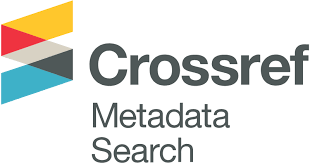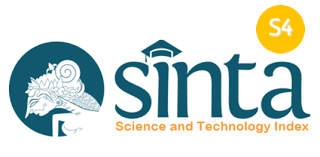Proses Perencanaan Pengembangan Agrowisata oleh Pemerintah Desa Kutanagara, Kecamatan Malangbong, Kabupaten Garut
DOI:
https://doi.org/10.47313/pjsh.v9i1.3514Keywords:
Agrowisata, Badan Usaha Milik Desa (BUMDes), Pemerintah Desa, Pendapatan Asli Desa, Perencanaan.Abstract
This research was conducted to determine the planning and development process of agrotourism in Kutanagara Village, Malangbong District, Garut Regency, as part of the tourism industry which is considered a leading sector. The main focus is the role of the Kutanagara Village government in managing agrotourism with Village-Owned Enterprises (BUMDes) as implementing tools in implementing the five planning stages as formulated by Samson, Donnell, and Daft (2020), namely: plan development, plan translation, operational planning, performance management and monitor and learn. The method used is qualitative research with data collection techniques in the form of interviews, observation and literature study. The aim of agrotourism planning in Kutanagara Village is to increase the number of tourists, revive the community's economy, and increase Village Original Income (PAD). The research results show that Kutanagara Village can map agrotourism potential and prepare an agrotourism master plan. However, challenges remain regarding clarity of objectives, effectiveness of the planning process, and community participation. Active community involvement and careful planning are the keys to successful agrotourism development. By optimizing agrotourism potential, it is hoped that it can increase Village Original Income (PAD) and the welfare of local communities.
Abstrak
Penelitian ini dilakukan untuk mengetahui proses perencanaan dan pengembangan agrowisata di Desa Kutanagara, Kecamtan Malangbong, Kabupaten Garut, sebagai bagian dari industri pariwisata yang dianggap sebagai sektor unggulan. Fokus utamanya adalah peran pemerintah Desa Kutanagara dalam mengelola agrowisata dengan Badan Usaha Milik Desa (BUMDes) sebagai alat pelaksana dalam menerapkan lima tahap perencanaan sebagaimana dirumuskan oleh Samson, Donnel, and Daft (2020), yaitu: pengembangan rencana, penerjemahan rencana, perencanaan operasional, manajemen kinerja dan monitor serta belajar. Metode yang digunakan adalah penelitian kualitatif dengan teknik pengumpulan data berupa wawancara, observasi dan studi pustaka. Adapun tujuan dari perencanaan agrowisata di Desa Kutanagara adalah untuk meningkatkan jumlah wisatawan, menghidupkan perekonomian masyarakat, dan meningkatkan Pendapatan Asli Desa (PAD). Hasil penelitian menunjukkan bahwa Desa Kutanagara bisa memetakan potensi agrowisata dan menyusun masterplan Agrowisata. Namun, masih terdapat tantangan terkait kejelasan tujuan, efektivitas proses perencanaan, dan partisipasi masyarakat. Keterlibatan aktif masyarakat dan perencanaan yang matang menjadi kunci keberhasilan pengembangan agrowisata. Dengan optimalisasi potensi agrowisata, diharapkan dapat meningkatkan Pendapatan Asli Desa (PAD) serta kesejahteraan masyarakat setempat.
References
Afiyanti, Yati. 2008. “Validitas Dan Reliabilitas Dalam Penelitian Kualitatif.” Jurnal Keperawatan Indonesia 12(2):137–41. doi: 10.7454/jki.v12i2.212.
Aikaterini, Gousiou, Spilanis Ioannis, and Kizos Thanasis. 2001. “Is Agrotourism ‘Agro’ or ‘Tourism’? Evidence from Agrotourist Holdings in Lesvos, Greece.” Anatolia 12(1):6–22. doi: 10.1080/13032917.2001.9686995.
Amitai Etzioni. 1984. Modern Organizations. Prentice-Hall, Englewood Cliffs, N.J.
Baranova, Alla, and Svetlana Kegeyan. 2019. “Agrotourism as an Element of the Development of a Green Economy in a Resort Area.” E3S Web of Conferences 91:08006. doi: 10.1051/e3sconf/20199108006.
Bassano, Clara, Maria Cristina Pietronudo, and Paolo Piciocchi. 2018. “The Use of Smart Tourism Systems to Improve the Destination’s Appeal: A Case Study from Caserta in Italy.” Pp. 239–59 in Tourism Planning and Destination Marketing, edited by M. A. Camilleri. Emerald Publishing Limited.
Cohen, Ronald Jay, Mark E. Swerdlik, and Edward D. Sturman. 2013. Psychological Testing and Assessment . An Introduction to Tests and Measurement. 8th ed. New York: McGraw Hill New York.
Griffin, Ricky W. 2016. Fundamentals of Management. 8th ed. Cengage Learning.
Gunarta, I. Ketut, and Fuad Dwi Hanggara. 2018. “Development of Agrotourism Business Model as an Effort to Increase the Potency of Tourism Village(Case Study: Punten Village, Batu City).” MATEC Web of Conferences 204:03006. doi: 10.1051/matecconf/201820403006.
Hall, Colin Michael. 2008. Tourism Planning Policies, Processes and Relationships. 2nd ed. Pearson Education Limited.
Hanik, Ummi, and M. Imron Mas’ud. 2019. “PERENCANAAN INOVASI PENGEMBANGAN AGROWISATA BUKIT FLORA DENGAN PENDEKATAN METODE BISNIS MODEL KANVAS.” JKIE (Journal Knowledge Industrial Engineering) 6(3):91–100. doi: 10.35891/jkie.v6i3.2088.
Hasibuan, Indra Mualim, Satrya Mutthaqin, Ridho Erianto, and Isnaini Harahap. 2023. “Kontribusi Sektor Pariwisata Terhadap Perekonomian Nasional.” Jurnal Masharif Al-Syariah: Jurnal Ekonomi Dan Perbankan Syariah 8(2). doi: 10.30651/jms.v8i2.19280.
Kaplan, Robert S., and David P. Norton. 2004. Strategy Maps: Converting Intangible Assets Into Tangible Outcomes. Harvard Business School Press.
Kaplan, Robert S., and David P. Norton. 2008. “Mastering the Management System.” Harvard Business Review, January 1.
Kerzner, Harold. 2017. Project Management A Systems Approach to Planning, Scheduling, and Controlling. 12th ed. John Wiley & Sons.
Merriam, Sharan B., and Elizabeth J. Tisdell. 2016. Qualitative Research: A Guide to Design and Implementation. 4th ed. Jossey-Bass.
Muzha, Vianda Kushardianti, Heru Ribawanto, and Minto Hadi. 2013. “Pengembangan Agrowisata Dengan Pendekatan Community Based Tourism (Studi Pada Dinas Pariwisata Kota Batu Dan Kusuma Agrowisata Batu).” (3).
Newton, Richard. 2017. Project Management Step by Step: How to Plan and Manage a Highly Successful Project. 2nd ed. Pearson Education Limited.
Palinkas, Lawrence A., Sarah M. Horwitz, Carla A. Green, Jennifer P. Wisdom, Naihua Duan, and Kimberly Hoagwood. 2015. “Purposeful Sampling for Qualitative Data Collection and Analysis in Mixed Method Implementation Research.” Administration and Policy in Mental Health and Mental Health Services Research 42(5):533–44. doi: 10.1007/s10488-013-0528-y.
Phillips, Rhonda, and Sherma Roberts, eds. 2013. Tourism, Planning, and Community Development. Routledge.
Poerwandari, Kristi. 2005. Pendekatan Kualitatif Untuk Penelitian Perilaku Manusia. Jakarta: LPSP3 Fakultas Psikologi UI.
Putra, I. Wayan Eka Darma, and Anak Agung Ketut Sukranatha. 2014. “PENGATURAN KEWENANGAN DESA DALAM PENGELOLAAN PARIWISATA.” Kertha Negara : Journal Ilmu Hukum 2(5).
Rasool, Haroon, Shafat Maqbool, and Md. Tarique. 2021. “The Relationship between Tourism and Economic Growth among BRICS Countries: A Panel Cointegration Analysis.” Future Business Journal 7(1):1. doi: 10.1186/s43093-020-00048-3.
Samson, Danny, Timothy Donnel, and Richard L. Daft. 2020. Management. 7th ed. Cengage Learning Australia Ply Limited.
Subandoyo. 2021. “DESA KUTANAGARA MALANGBONG, MENUJU DESA PRODUKTIF, EDUKATIF DAN REKREATIF | Klipaa.com.” https://klipaa.com. Retrieved October 17, 2023 (https://klipaa.com/story/2575-desa-kutanagara-malangbong-menuju-desa-produktif-edukatif-dan-rekreatif).
Sugiyono. 2019. Metode Penelitian Kuantitatif Kualitatif Dan R&D. Alfabeta.
Utama, I. Gusti Bagus Rai. 2014. “Agrotourism as an Alternative Form of Tourism in Bali Indonesia.” doi: 10.2139/ssrn.2517811.
Downloads
Published
Issue
Section
License

This work is licensed under a Creative Commons Attribution-NonCommercial 4.0 International License.
- Hak publikasi atas semua materi informasi yang tercantum dalam situs jurnal ini dipegang oleh dewan redaksi/editor dengan sepengetahuan penulis. Pengelola Jurnal akan menjunjung tinggi hak moral penulis.
- Aspek legal formal terhadap akses setiap informasi dan artikel yang tercantum dalam situs jurnal ini mengacu pada ketentuan lisensi Creative Commons Atribusi-NonCommercial-No Derivative (CC BY-NC-ND), yang berarti bahwa hanya dengan izin penulis, informasi dan artikel Jurnal BACA dapat didistribusikan ke pihak lain dengan tanpa merubah bentuk aslinya untuk tujuan non-komersial.
- Setiap terbitan Populis Jurnal Sosial dan Humaniora, baik cetak maupun elektronik, bersifat open access untuk tujuan pendidikan, penelitian, dan perpustakaan. Di luar tujuan tersebut, penerbit atau pengelola jurnal tidak bertanggung jawab atas terjadinya pelanggaran hak cipta yang dilakukan oleh pembaca atau pengakses.









